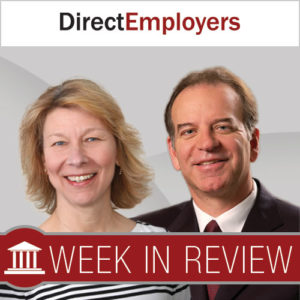
Wednesday, January 20, 2016: The U.S. Department of Labor’s Wage and Hour Division, in an effort to build awareness and understanding of joint employment standards, issued an Administrator’s Interpretation on joint employment under the Fair Labor Standards Act (FLSA) and Migrant and Seasonal Agricultural Worker Protection Act (MSPA).
As the DOL reports on a regular basis, a worker may be jointly employed by two or more employers which are both responsible, simultaneously, for compliance. There have been hundreds of investigations recently in which The Wage and Hour Division has found many joint employment situations each year that can result in costly issues for employers.
While the link above to the Administrator’s interpretation identifies common scenarios involving the FLSA and the MSPA and how the employment relationship is defined, additional information found therein deals with issues such as horizontal and vertical joint employment analyses that should be considered in all potential joint employment scenarios. Joint employment generally arises when a person ‘reports’ to and is subject to the control of two or more employers jointly which causes both employers to be jointly liable for compliance. Additional information can be found on this Joint Employment AI page.
More and more companies are finding themselves reliant on third parties to assist them to meet their business challenges by using staffing companies, independent contractors, etc., to meet their business staffing needs. As a result, many of these workers find themselves being equally responsible to two companies, although there is still a great misunderstanding of how these joint employment situations should be handled. They are creating what The Wage and Hour Division is calling a fissured workplace. Contractors are cautioned to ensure they have not misclassified their employees because that, too, can create some very costly circumstances for companies to face and it affects the employee, employers and the entire economy.
THIS COLUMN IS MEANT TO ASSIST IN A GENERAL UNDERSTANDING OF THE CURRENT LAW AND PRACTICE RELATING TO OFCCP. IT IS NOT TO BE REGARDED AS LEGAL ADVICE. COMPANIES OR INDIVIDUALS WITH PARTICULAR QUESTIONS SHOULD SEEK ADVICE OF COUNSEL.
Reminder: If you have specific OFCCP compliance questions and/or concerns or wish to offer suggestions about future topics for the OFCCP Week In Review, please contact your membership representative at 866-268-6206 (for DirectEmployers Association Members), or email me at candee@directemployers.org with your ideas.

